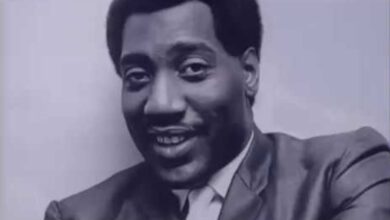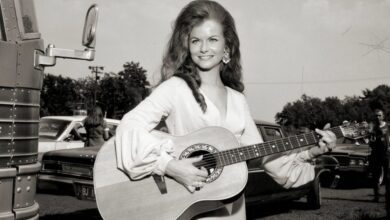A Soulful Eclipse: The Timeless Journey of Bill Withers’ ‘Ain’t No Sunshine’
In 1971, the music world was graced with a soulful lament that would become timeless: “Ain’t No Sunshine” by Bill Withers. This track, though brief at just over two minutes, encapsulates the profound ache of love lost. Its haunting melody and poignant lyrics have resonated with listeners for decades, cementing its place in the annals of classic soul music.
Bill Withers, born in the coal mining town of Slab Fork, West Virginia, on July 4, 1938, was the youngest of six children. His early life was marked by challenges, including a stutter that made his childhood difficult. After his parents divorced when he was three, he was raised by his mother’s family in nearby Beckley. At 17, seeking a change, Withers enlisted in the U.S. Navy, where he served for nine years. It was during this time that he developed an interest in singing and songwriting, setting the stage for his future musical endeavors.
After leaving the Navy in 1965, Withers moved to Los Angeles in 1967 to pursue a music career. He worked various jobs, including as a mechanical assembler for companies like Douglas Aircraft Corporation, IBM, and Ford, all while recording demo tapes with his own money and performing in clubs at night. His persistence paid off when his demo tape caught the attention of Clarence Avant, owner of Sussex Records, leading to a record deal and the production of his debut album, “Just As I Am,” in 1971.
The inspiration for “Ain’t No Sunshine” struck Withers after watching the 1962 film “Days of Wine and Roses,” which tells the story of a couple’s descent into alcoholism. Reflecting on the characters’ struggles, Withers mused about the nature of missing something detrimental, likening it to “going back for seconds on rat poison.” This introspection led to the creation of a song that delves deep into the complexities of longing and loss.
Interestingly, during the recording of the song, Withers had intended to write more lyrics for the bridge but ended up repeating the phrase “I know” 26 times as a placeholder. The other musicians in the studio, recognizing the raw emotion conveyed in this repetition, advised him to leave it unchanged. Withers, then a factory worker making bathrooms for 747s, trusted their judgment, resulting in one of the song’s most iconic features.
Upon its release, “Ain’t No Sunshine” was initially the B-side to the track “Harlem.” However, disc jockeys favored “Ain’t No Sunshine,” propelling it to become Withers’ first major hit. The song reached number six on the U.S. R&B Chart and number three on the Billboard Hot 100 chart, earning Withers his first gold record. To commemorate this success, the record company presented him with a golden toilet seat, a nod to his previous occupation and a symbol of his transition into the music industry.
The song’s success was further solidified when it won the Grammy Award for Best R&B Song in 1972. Over the years, it has been covered by numerous artists across various genres, including Michael Jackson, who recorded a rendition for his debut album “Got to Be There” in 1972. The song’s enduring appeal is a testament to its universal theme and Withers’ soulful delivery.
Bill Withers’ career continued to flourish with hits like “Lean on Me,” “Use Me,” and “Lovely Day.” Despite his success, Withers remained humble and grounded, often expressing surprise at his achievements. He eventually stepped away from the music industry in the mid-1980s, choosing a life away from the spotlight. His legacy, however, endures, with his songs continuing to inspire and comfort listeners around the world.
In 2024, “Ain’t No Sunshine” was added to the National Recording Registry by the Library of Congress, recognized as being “culturally, historically, and/or aesthetically significant.” This honor underscores the song’s lasting impact and its place in American musical history.
Reflecting on his journey, Withers once said, “I was this factory worker puttering around.” His story is a powerful reminder that profound art can emerge from the most humble beginnings, and that genuine emotion, when expressed authentically, resonates across time and space.
For those who wish to experience the raw emotion of “Ain’t No Sunshine,” here’s a live performance by Bill Withers from 1972:



